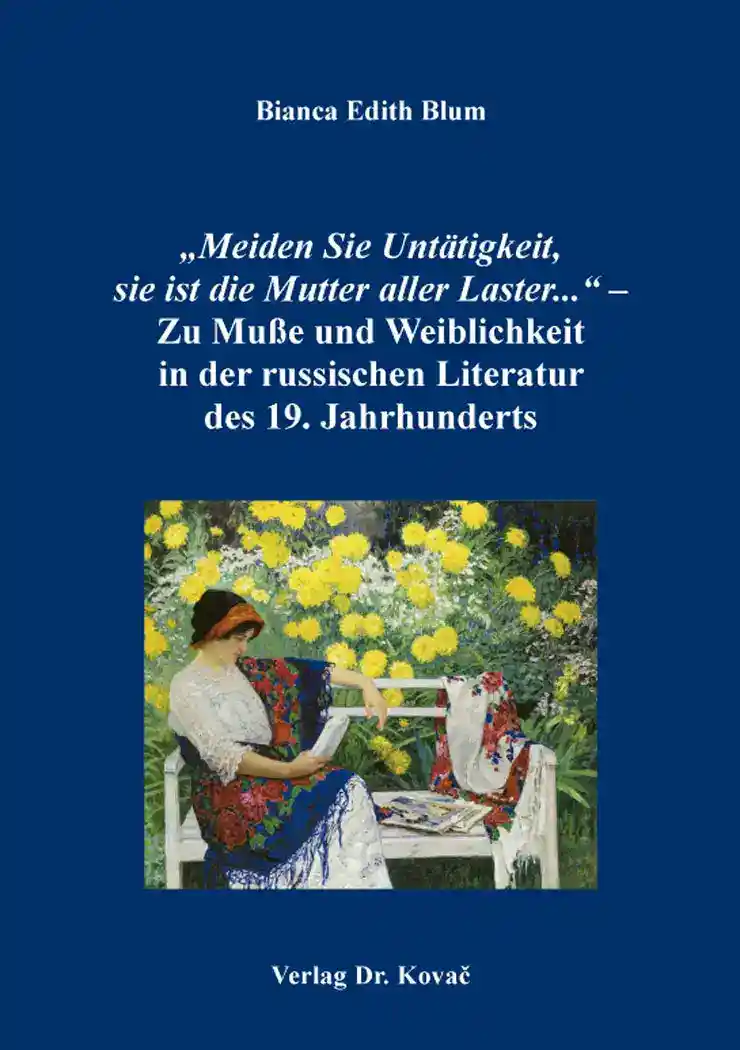Bianca Edith Blum„Meiden Sie Untätigkeit, sie ist die Mutter aller Laster...“ –
Zu Muße und Weiblichkeit in der russischen Literatur des 19. Jahrhunderts
Studien zur Slavistik, volume 49
Hamburg 2019, 320 pages
ISBN 978-3-339-11164-7 (print) |ISBN 978-3-339-11165-4 (eBook)
About this book deutschenglish
The discourse on Muße (leisure/idleness), often in connection with questions about how to use time in a meaningful way, did not first emerge in our present, fast-paced society. During the 19th century, the question of how to spend one’s own time played a major role and was addressed differently for both sexes. Female members of the Russian gentry, for example, on whom this study focuses, barely had a say in how to spend their private time. Even though this social class had to kill a veritable surplus of (leisure) time, the everyday life of noble girls and women was controlled by a strict regulation of time. Along with this came gender-specific allocations of space and activities, which severely restricted the lives of noble girls and women.
The present study examines the complex phenomenon of Muße in relation to the Russian gentry and contemporary ideas of ideal femininity. The analysis of normative literature in the form of advice and educational books as well as fictional texts by both prominent male Russian authors as well as lesser-known female authors identifies different concepts of Muße and femininity represented in 19th-century Russian literature. Characteristic spaces and activities crystallize. Thus, descriptions of female Muße mainly unfold in spaces such as gardens and windows, whereas needlework, and embroidery in particular, appears to be one of the most frequently performed leisure activities. It becomes apparent that illustrating female experiences of Muße in literary texts allows an author to subvert contemporary ideals of femininity, and to introduce alternative notions of the concept.
Keywords
19. JahrhundertBildungErziehungFrauenliteraturGenderGender StudiesLiteraturwissenschaftMußeOsteuropäische GeschichteRatgeberliteraturRaumRussische LiteraturRussischer AdelRusslandSlavistikUntätigkeitWeiblichkeitZeitIhr Werk im Verlag Dr. Kovač

Möchten Sie Ihre wissenschaftliche Arbeit publizieren? Erfahren Sie mehr über unsere günstigen Konditionen und unseren Service für Autorinnen und Autoren.
